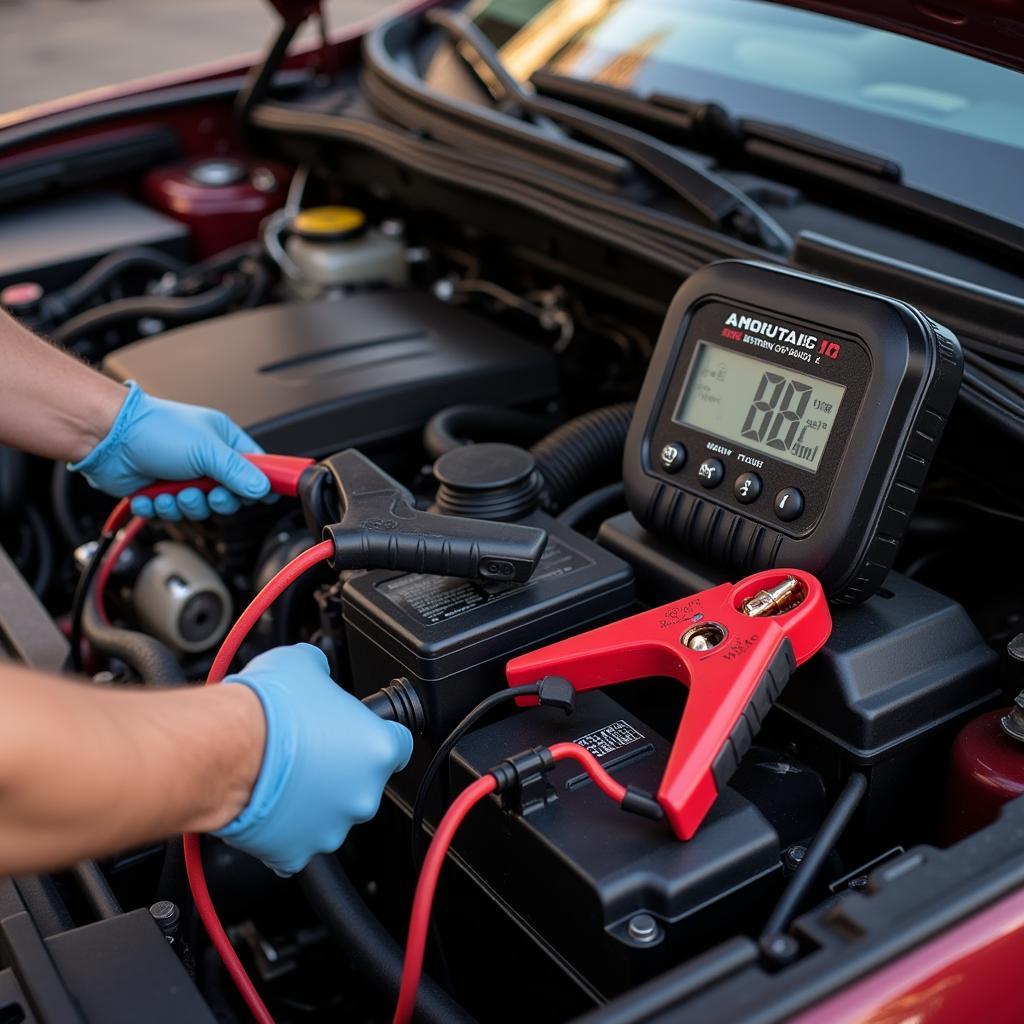Car Transmission Problems Sounds can be a real headache. From subtle whines to jarring clunks, these noises often signal underlying issues that require immediate attention. Understanding these sounds can save you time, money, and potential further damage to your vehicle. This guide will help you diagnose and address common transmission noise problems.
Identifying Common Car Transmission Sounds
Different sounds indicate different problems within your transmission. Let’s break down some of the most common noises and their potential causes:
Whining Sounds
A whining sound, especially noticeable when accelerating, often suggests low transmission fluid levels. It could also indicate a worn-out transmission pump or bearing. Ignoring this sound can lead to significant damage.
- Check Fluid Levels: Ensure your transmission fluid is at the correct level and has the right color and consistency. If it appears dark or burnt, it needs changing.
- Inspect the Pump: A failing transmission pump can cause a whining noise as it struggles to maintain proper fluid pressure.
Grinding Sounds
A grinding sound, particularly when shifting gears, is a serious red flag. This often indicates worn synchronizers or damaged gears within the transmission. This issue requires immediate professional attention.
- Avoid Forceful Shifting: If you experience grinding when shifting, avoid forcing the gear lever. This could exacerbate the problem.
- Seek Professional Help: Grinding sounds often require internal transmission repairs, so it’s best to consult a qualified mechanic.
Clunking or Thumping Sounds
Clunking or thumping sounds can signify a variety of problems, from worn-out U-joints to loose transmission mounts. Identifying the source of these sounds is crucial for effective repair.
- Check Mounts: Inspect the transmission mounts for wear and tear. Damaged mounts can cause the transmission to shift excessively, leading to clunking noises.
- Inspect U-Joints: Worn-out U-joints in the driveshaft can also create clunking sounds, especially during acceleration or deceleration.
Car Transmission Problems Sounds: Troubleshooting Tips
Addressing transmission problems early is key to preventing costly repairs. Here’s a step-by-step guide to troubleshooting common transmission noise issues:
- Identify the Sound: Pay close attention to when and how the sound occurs. Does it happen when accelerating, decelerating, or shifting gears?
- Check Fluid Levels: As mentioned earlier, low transmission fluid is a common culprit for whining sounds. Top it off if needed.
- Inspect for Leaks: Look for any signs of fluid leaks under your vehicle. Transmission fluid leaks can lead to low fluid levels and damage.
- Test Drive: Take your vehicle for a test drive and listen carefully for the noise. Try different driving conditions, such as accelerating, decelerating, and turning.
What are some common sounds related to car transmission problems?
Some common sounds associated with transmission problems include whining, grinding, clunking, humming, and buzzing.
Why is my car making a whining noise when I accelerate?
A whining noise during acceleration could indicate low transmission fluid, a worn transmission pump, or a problem with the torque converter.
Should I drive my car if the transmission is making a grinding noise?
It’s best to avoid driving your car if you hear grinding noises from the transmission, as this could indicate serious damage.
“Addressing transmission problems early can save you a lot of money in the long run,” says John Miller, a certified automotive technician with over 20 years of experience. “Ignoring these noises can lead to catastrophic transmission failure.”
Why is preventative maintenance important for my car’s transmission?
Regular maintenance, including fluid changes and inspections, can help prevent costly transmission repairs. “Regular fluid changes are like giving your transmission a vitamin boost,” says Sarah Johnson, a senior automotive engineer. “They help keep the system clean and operating smoothly.”
Conclusion: Addressing Car Transmission Problems Sounds
Car transmission problems sounds are often the first warning sign of a developing issue. Recognizing and addressing these sounds promptly can prevent further damage and costly repairs. By understanding the different types of sounds and their potential causes, you can take the necessary steps to maintain your vehicle’s transmission and keep it running smoothly. If you’re experiencing persistent or concerning transmission noises, don’t hesitate to contact a qualified mechanic for a professional diagnosis and repair. Connect with us at AutoTipPro at +1 (641) 206-8880 or visit our office at 500 N St Mary’s St, San Antonio, TX 78205, United States for assistance with your car transmission problems sounds.
FAQ
-
What does low transmission fluid sound like? Low transmission fluid often causes a whining sound, particularly noticeable during acceleration.
-
How much does a transmission repair typically cost? Transmission repair costs vary depending on the severity of the problem, but can range from a few hundred to several thousand dollars.
-
Can I drive my car with a transmission problem? While you may be able to drive for a short distance with a minor transmission problem, it’s best to avoid driving and seek professional help to prevent further damage.
-
How often should I change my transmission fluid? Consult your vehicle’s owner’s manual for recommended transmission fluid change intervals. Generally, it’s recommended to change the fluid every 30,000 to 60,000 miles.
-
What causes a grinding noise when shifting gears? A grinding noise when shifting gears typically indicates worn synchronizers or damaged gears within the transmission.
-
How can I prevent transmission problems? Regular maintenance, including fluid changes and inspections, is the best way to prevent transmission problems.
-
What should I do if my car is making a clunking noise? Clunking noises can be caused by a variety of issues, including worn U-joints or loose transmission mounts. It’s best to have a mechanic inspect the vehicle to determine the exact cause.






Leave a Reply